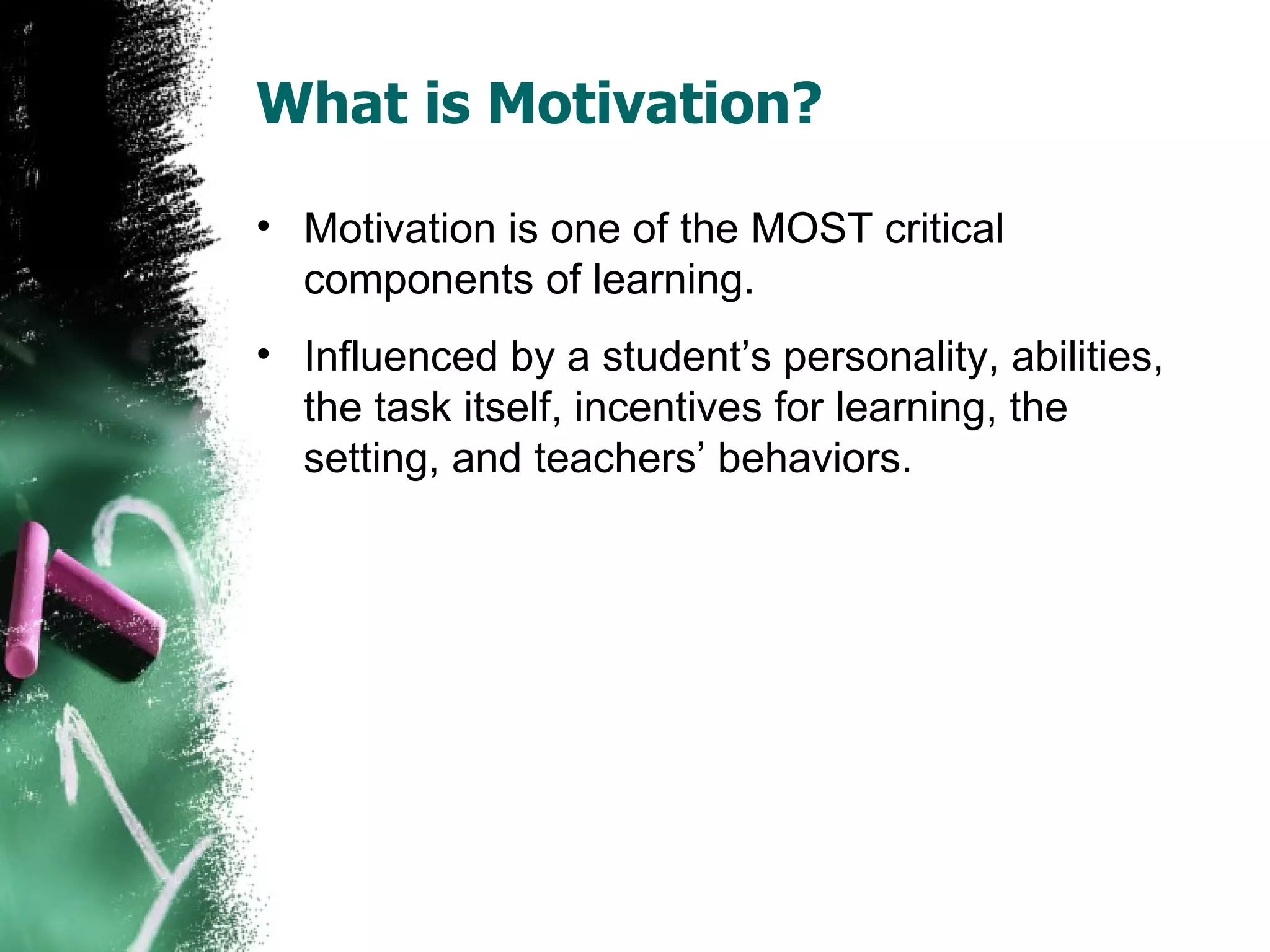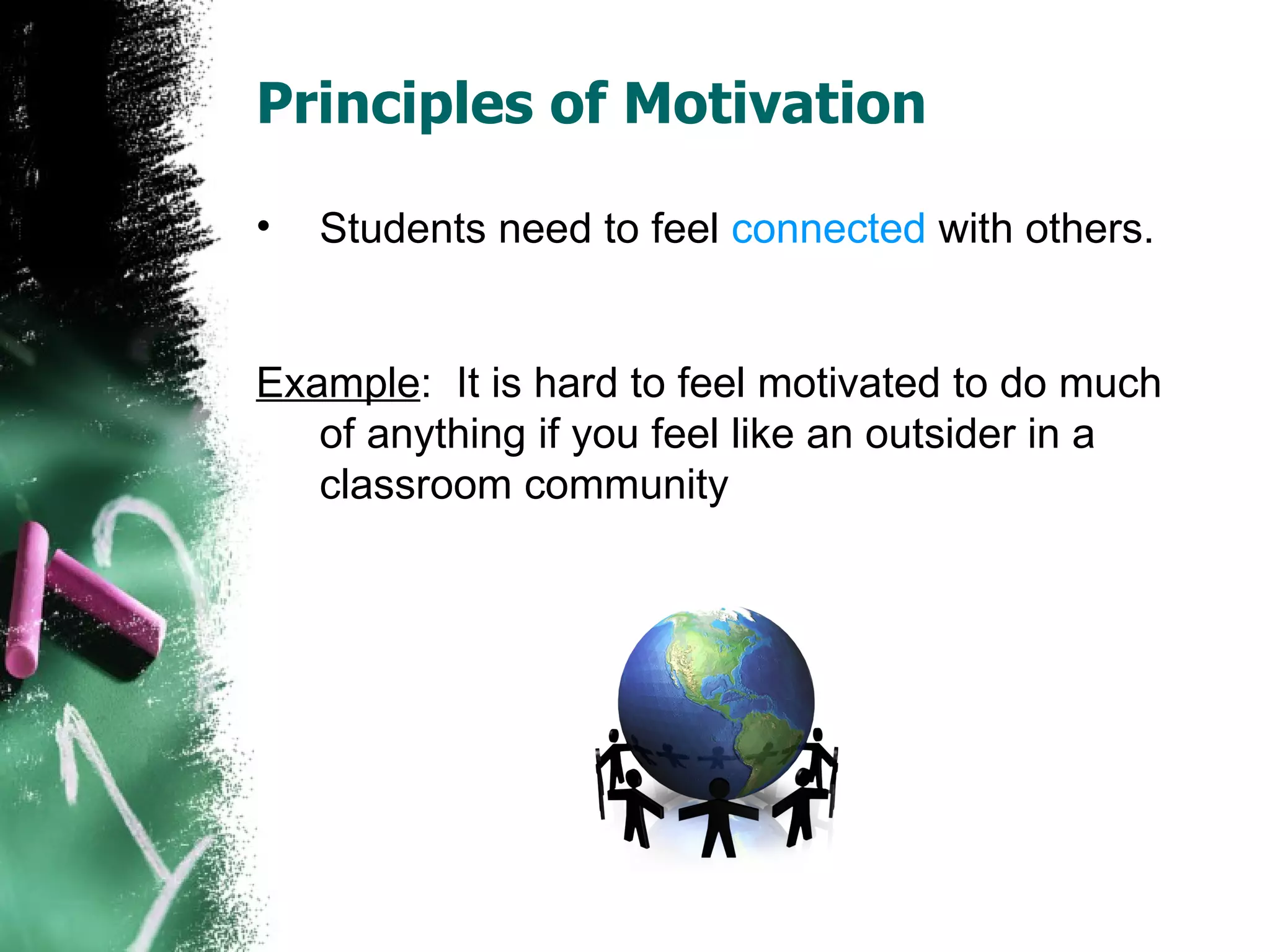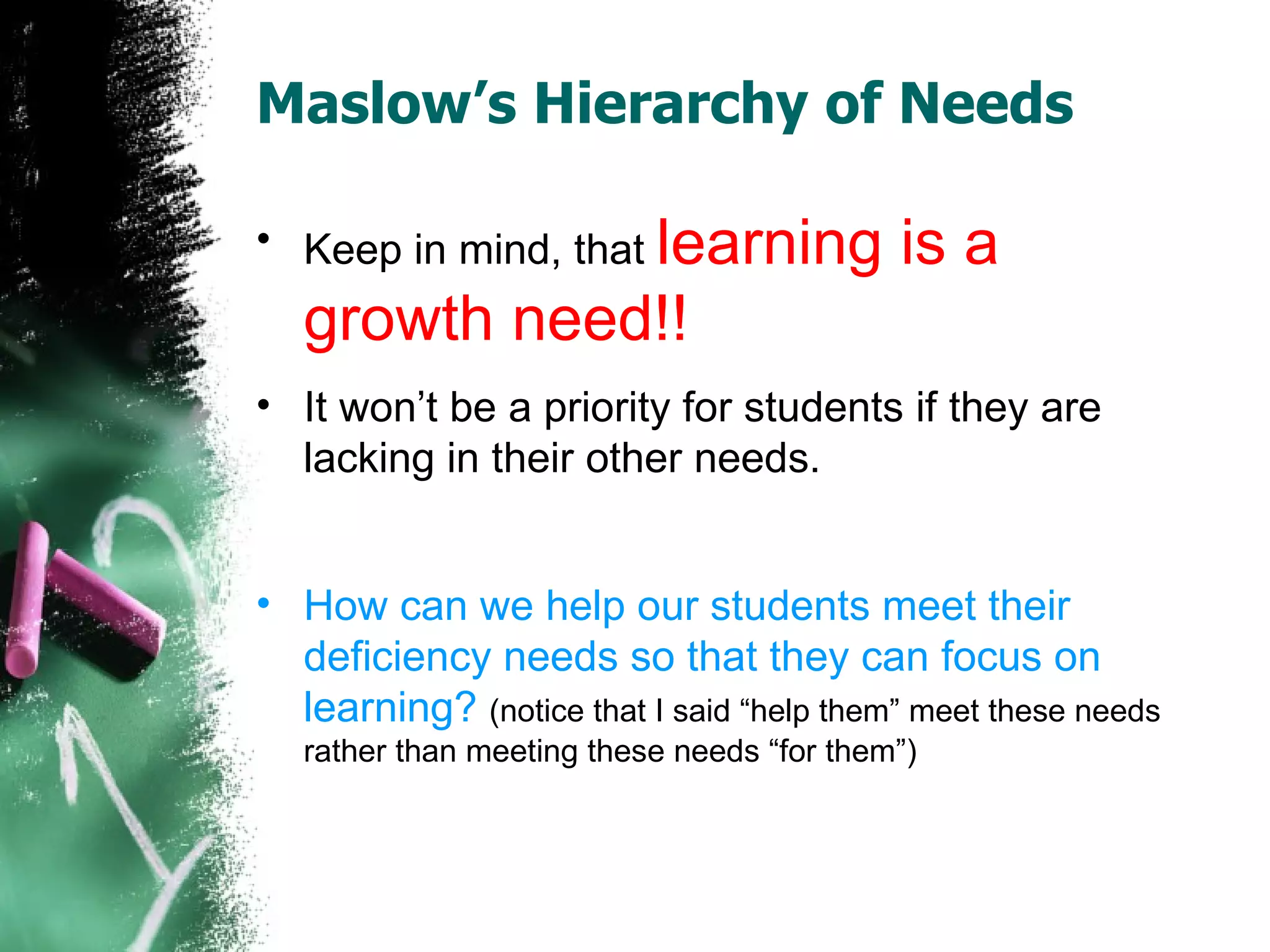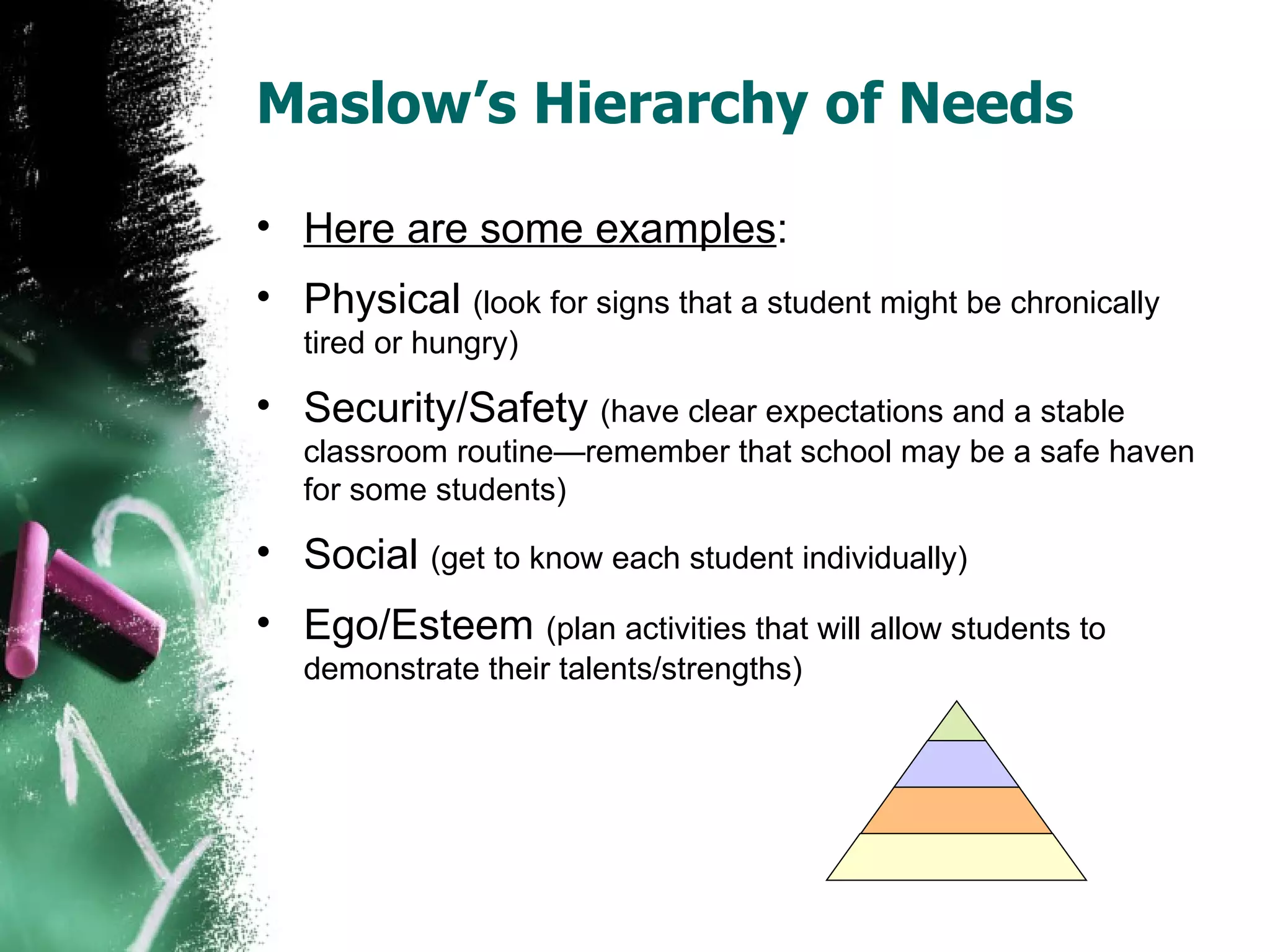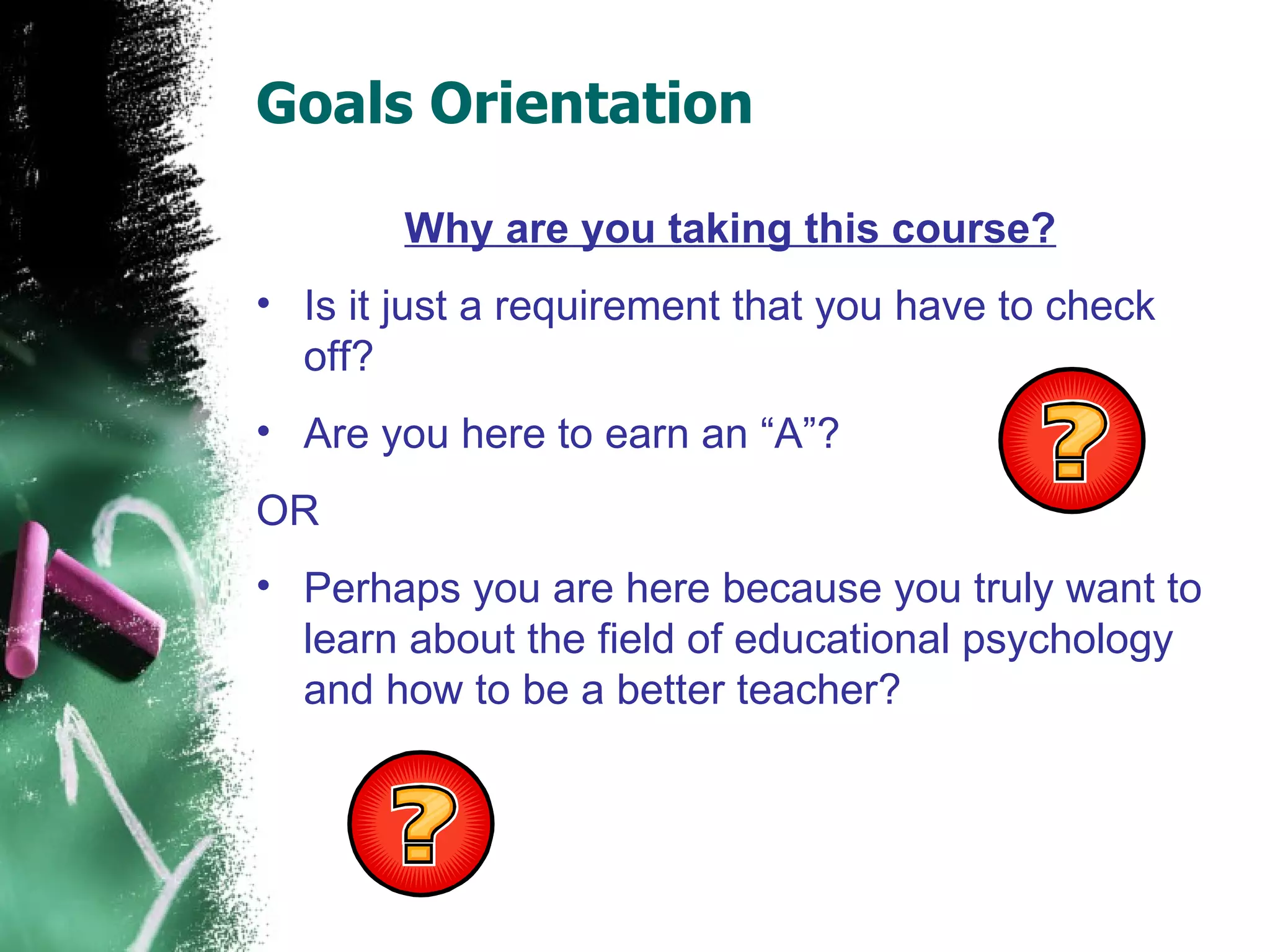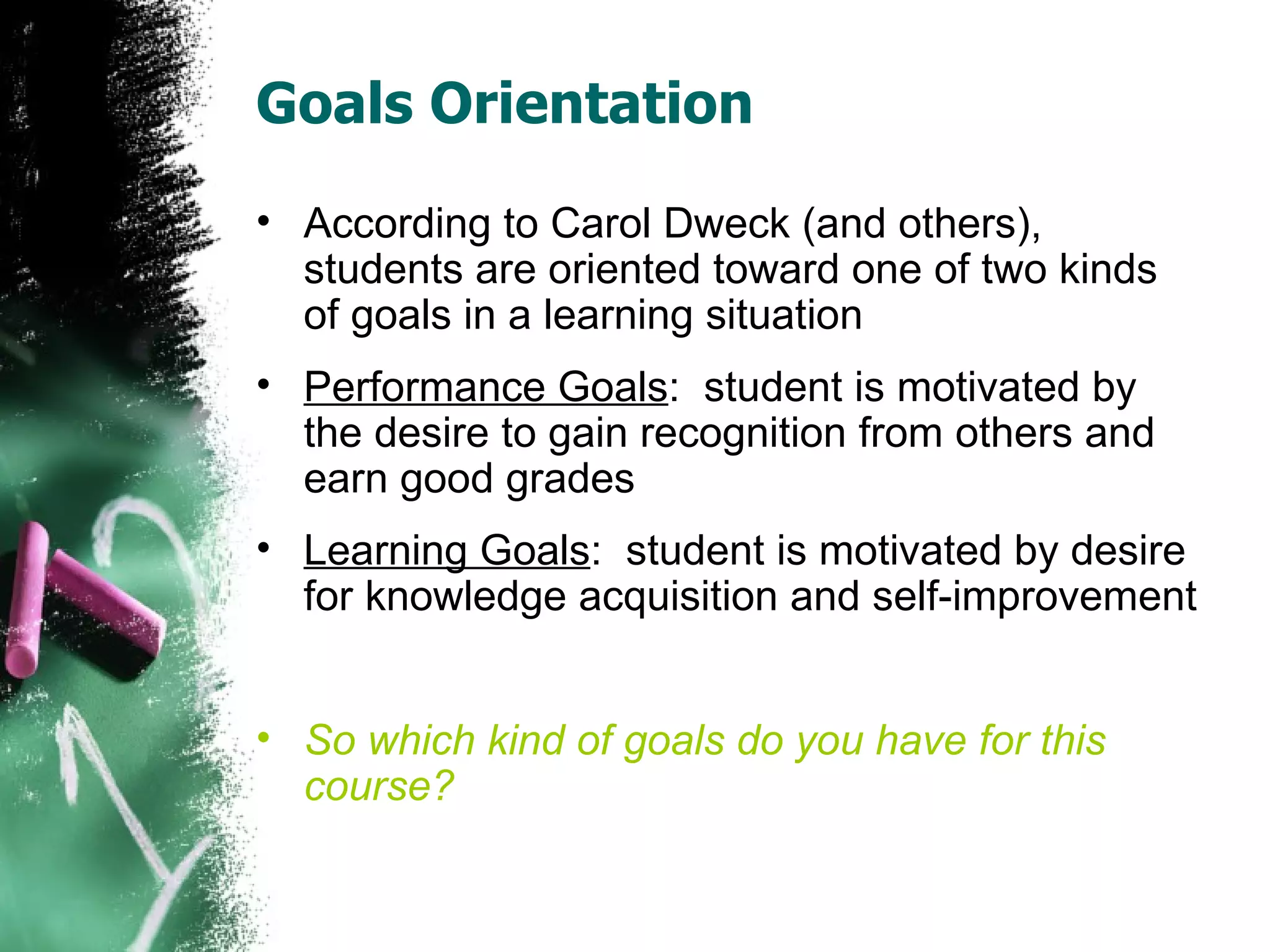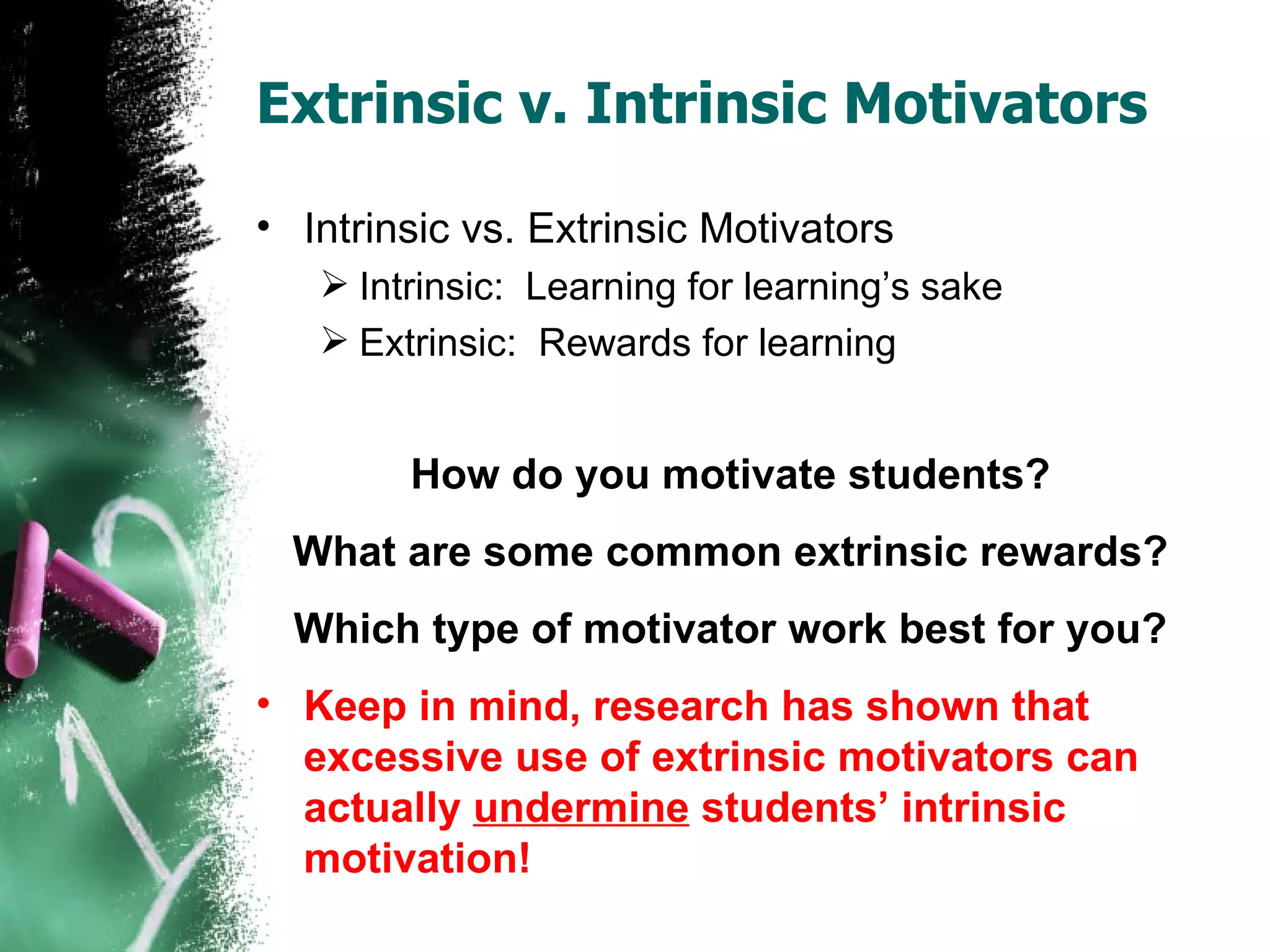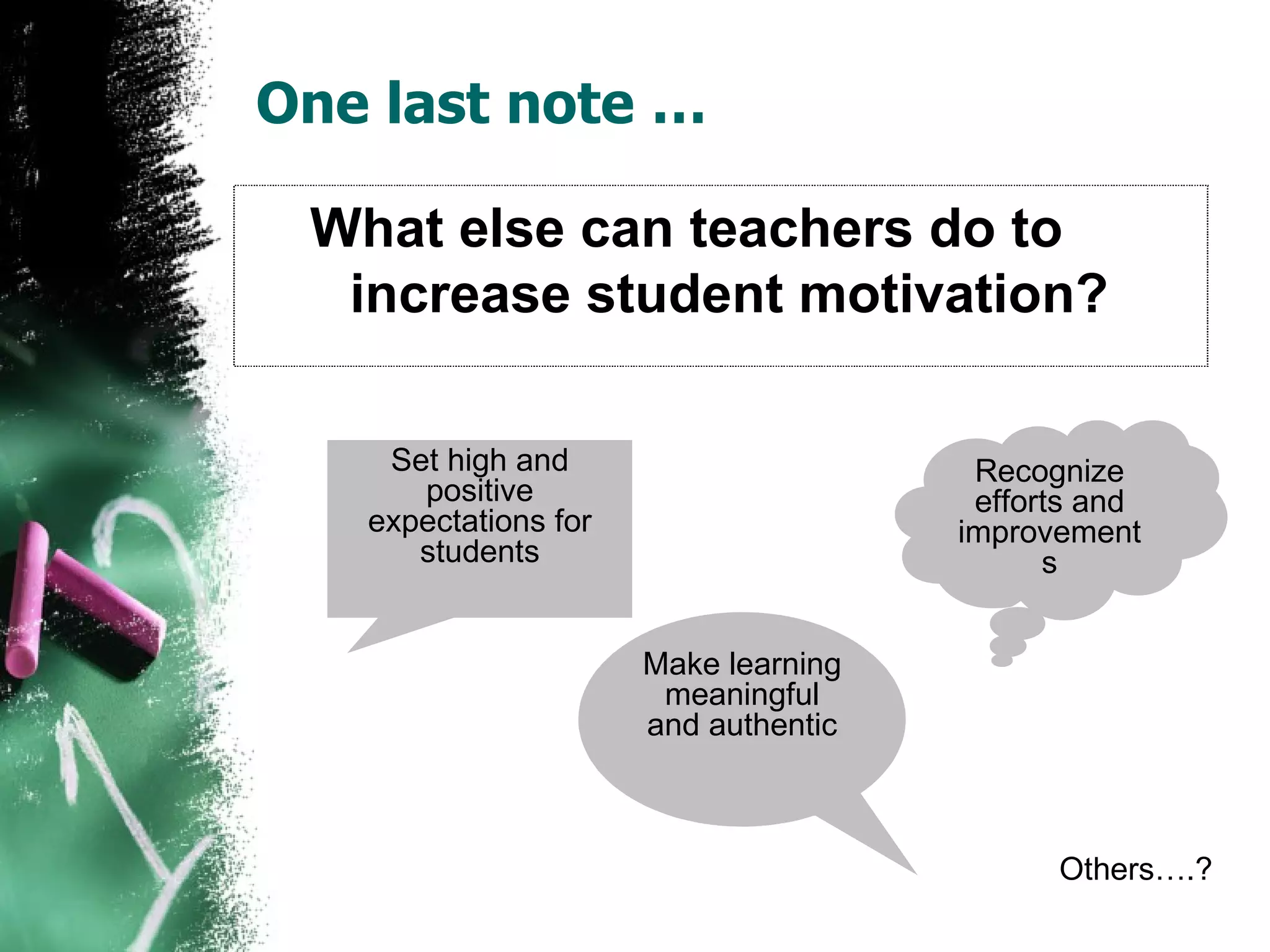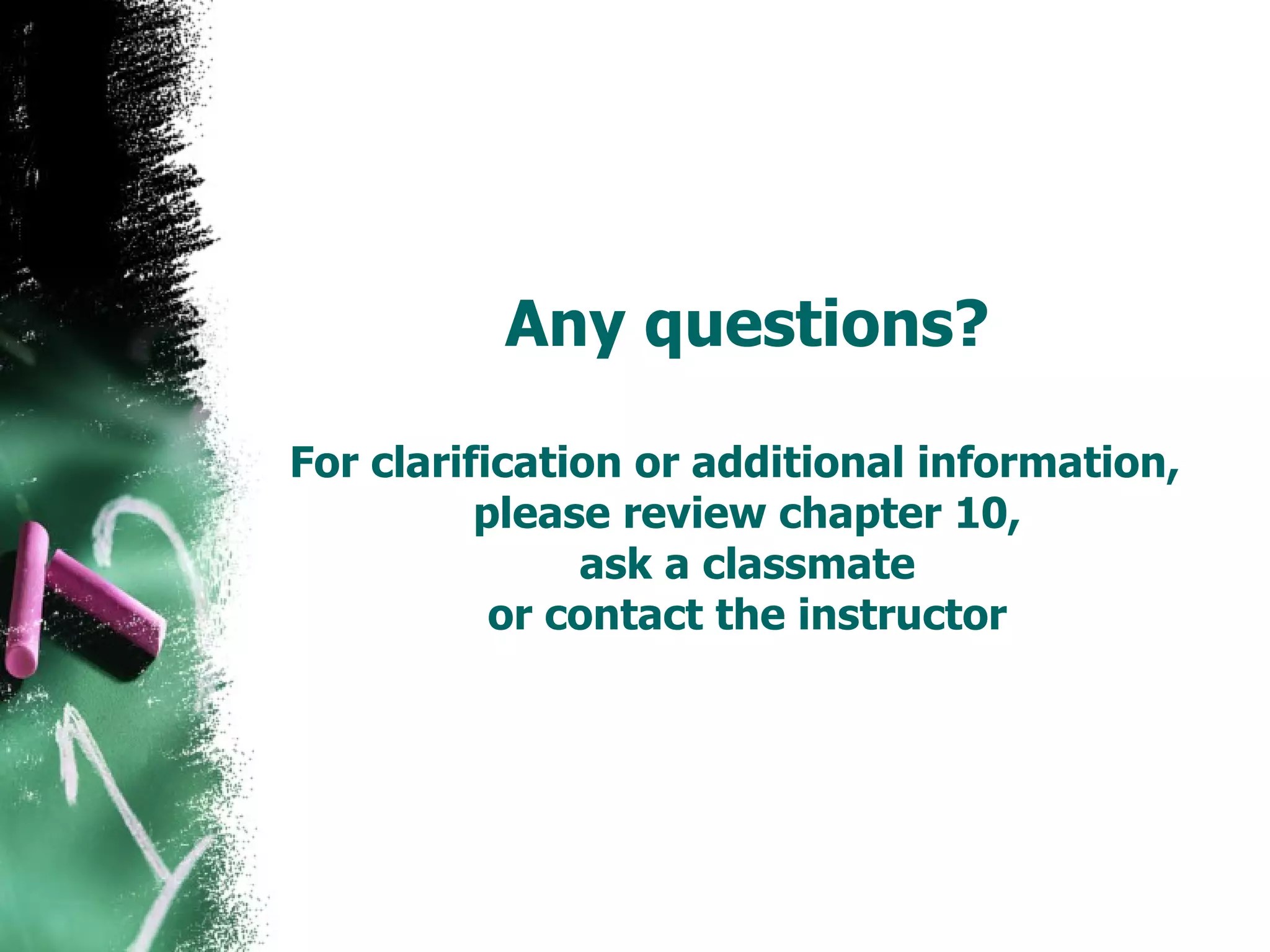Dr. Jennifer Irwin discusses student motivation in education. She notes that motivation is a shared goal between teachers and students, not solely the responsibility of teachers. The document then provides an overview of theories of motivation including behaviorism, Maslow's hierarchy of needs, attribution theory, expectancy theory, goals orientation theory, and flow theory. It also discusses the teacher's role in motivation using the ARCS model of gaining student attention, relevance, confidence and satisfaction. Intrinsic versus extrinsic motivators are compared, and the relationship between anxiety and performance is addressed. The importance of teacher expectations on student motivation is emphasized.







